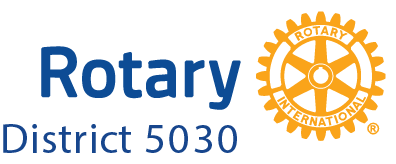Educating Rotarians on Pending Environmental Legislation in Olympia
The Rotary District 5030 Environmental Sustainability Committee encourages all Rotarians to stay informed about important environmental legislation. Below is a summary of the pending Recycling Reform Act, which is currently being considered in Olympia.
While Rotary itself cannot engage in lobbying, individual Rotarians concerned about this issue are encouraged to contact their elected officials in their personal capacity. The following information is provided by the Environmental Priorities Coalition.
The Challenge: A Growing Waste Crisis
Globally, we produce nearly 400 million tons of plastic waste annually, with almost half of all plastic products designed for single-use disposal. Washingtonians experience this issue firsthand as plastic waste and other materials:
- Litter our neighborhoods, shorelines, and parks
- Fill landfills to capacity
- Harm wildlife
- Contribute to excessive packaging waste, particularly from single-use items
Unfortunately, Washington’s recycling systems have been unable to keep up with the increasing volume of plastic and paper packaging entering our homes and environment.
Key Facts About Washington’s Recycling System:
- More than 50% of all consumer packaging and paper products in Washington end up in landfills or are incinerated, wasting an estimated $104 million in valuable materials.
- Only 17% of plastic packaging waste is actually recycled.
- Recycling service bills for Washington residents have increased by up to 30% over the past five years.
- Recycling access is inconsistent across the state, with many residents required to pay extra for recycling services.
- Residents in 11 counties lack access to curbside recycling services altogether.
The Solution: The Recycling Reform Act
The Recycling Reform Act aims to reduce waste and improve recycling efficiency by shifting the financial responsibility for end-of-life packaging costs from residents to producers—the companies making packaging decisions.
By holding producers accountable, the act will:
- Encourage companies to reduce excess packaging
- Promote the use of reusable, compostable, or truly recyclable materials
- Create incentives for sustainable packaging solutions
This producer responsibility model has already been successfully implemented in other regions, leading to higher recycling rates, lower costs for consumers, and reduced environmental impact.
*This information is borrowed from the Environmental Priorities Coalition.*
Stay Informed and Take Action
Rotarians are encouraged to educate themselves about the Recycling Reform Act and its potential impact. While Rotary does not engage in lobbying, Rotarians may choose to contact their elected officials as concerned citizens to express their views.
For more information, please reach out to:
Dave Spicer
Chair, Rotary District 5030 Environmental Sustainability Committee
Email: dspicer@davespicerlaw.com

